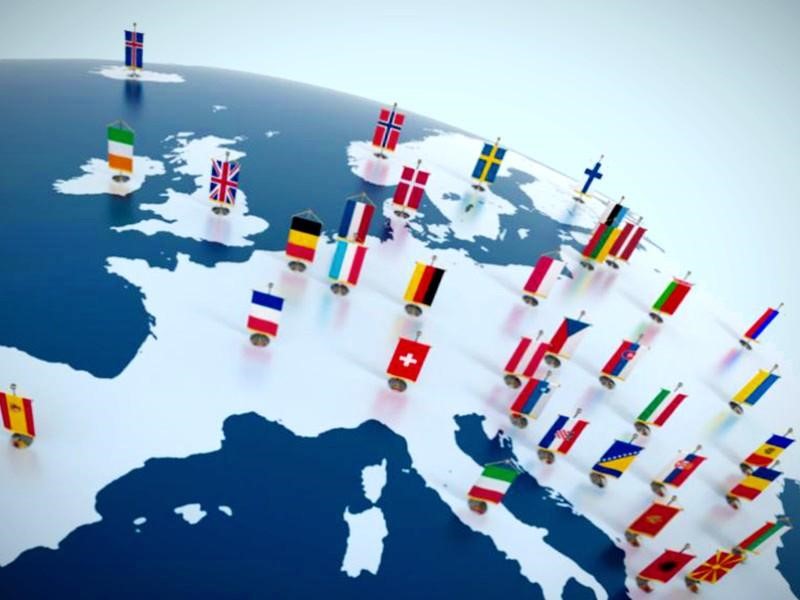The increasing economic interconnectedness, the emergence of soft power through cultural flows, populism movements, digitalization, and rising inequality has shaped the contemporary global world order. It has also highlighted major shifts in world politics exhibiting the great power rivalry. The interconnectedness in the contemporary world can be seen as international rather than global as it demonstrates the aspects of exclusion rather than inclusion. For instance, the hegemonic influence exerted by Pax Britannica and Pax Americana in the 19th and 20th centuries manifests the monopoly of the global order by two nation-states. Thus, terming the events of the contemporary world as “Globalization” is very contradictory and hence I propose the alternative term “Internationalisation” to define the current global world order. The process of internationalization demonstrates the dominance of nation-states in increasing international flows across national economies. The emphasis on internationalization is argued through this essay by analysing certain contemporary events specifically in the domain of politics, culture, and economy.
Several political instances in the contemporary global world demystify the role of states to undermine the byproducts of globalization and shape the process of globalization as per their national interests. For instance, the presidency of Donald Trump began with the agenda of “America first” which facilitated the rise of populist movements in the United States and other nations like Brazil. The Anti-globalization stance has become popular across the globe with the United States adopting strict anti-immigration laws, opting out of several multilateral agreements like NAFTA and Trans-Pacific Partnership; a fall in FDI across the globe as per World Bank data, and authoritarians coming in power. The rising concerns of immigration and multiculturalism, which are the byproducts of the process of globalization, are becoming catalysts of intensifying political tensions in modern states. For instance, Brexit happened because of rising discontentment among the populace on issues like immigration and race relations. The recently concluded elections in France show the far-right candidate, Le Pen, occupying the second position with 41.5% of the total votes. Le pen’s presidential campaign revolved around issues like fighting Islamic terrorism, upholding the rights of French citizens, contesting multiple ethnicities, changing relationships with the EU and NATO, and mainly endorsing anti-globalism in the French populace.
Contemporary world events have also seen growing internationalization in the cultural sphere shaped by the national interests of sovereign states. The Belt and Road initiative of China whose motto is to reestablish the old silk route is a clear indication of how a state facilitates the increasing flows and interconnectedness as per its interest in order to expand its rising sphere of influence in the global world. The enlarging cultural flows have given the states a major chance to uplift and establish their cultural hegemony through soft power. For instance, the popularity of k-pop has enriched Korean culture across the globe. K-pop has produced positive economic growth for South Korea. The Asian financial crisis of 1997 hugely impacted the South Korean economy. President Dae Jung, (the then President of South Korea) decided to invest heavily in the entertainment industry, especially k-pop to generate revenue and safeguard the economic system to prevent catastrophic effects in the future. Today, it has become a billion-dollar industry, with k-pop band BTS acquiring around 100 billion views within just 24 hours from their song “Dynamite” released in 2020.
The concept of internationalization can also be attributed to the context of economic globalization. According to economic globalization, the world economy becomes more integrated and global, transcending the territorial boundaries and becoming super territorial. Through analyzing measures of economic globalization like trade, FDI, and production, it can be concluded that the process of globalization is international rather than global and hence I lay emphasis on the term “Internationalization”. For instance, the UNCTAD report published this year depicted that the total increment in FDI inflows in 2021 is 718 billion dollars. More than 500 billion dollars out of the total FDI inflows were noted in developed economies, especially OECD countries. Also, The United States followed by China and Canada were the top three recipients of FDI inflows in 2021 with OECD acquiring 45% of the global FDI in 2021. Global trade is dominated by the European Union, China, the USA, and Russia as they are the leading export and import partners for most countries across the globe. More than 60 percent of the world’s GDP and around 75 percent of the world’s trade are dominated by OECD countries. Most of the MNCs dominating the global production systems have headquarters in their specific national territories. MNCs are outsourcing their production systems to poorer nations to minimise their production cost by employing cheap labour which creates the scenario for global wage inequality experienced mainly by the workforce in developing or least developing countries.
Hence, the integration in the contemporary global order is influenced and directed by national economies which are also strengthening the mutual interdependence between them. Therefore, ‘Internationalization’ can be termed as an appropriate term to define the sphere of political, economic, cultural, technological, and sociological interconnectedness in the contemporary world dominated by international rather than global discourse.
References-
Baylis, J., Smith, B., and Owens, P., n.d. The globalization of world politics. Pp.19-30.
Lang, M., 2006. Globalization and Its History. The Journal of Modern History,
https://www.oecd.org/investment/investment-policy/FDI-in-Figures-April-2022.pdf
https://ustr.gov/trade-agreements/wto-multilateral-affairs/oecd
https://english.news.cn/20220120/cee4681b9b2c42a59dd1f3e9bf35dd26/c.html

